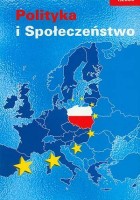Historyczne i współczesne cechy tożsamości europejskiej
Historical and contemporary features of European identity
Author(s): Kazimierz ŁastawskiSubject(s): Politics / Political Sciences, Political Sciences, History and theory of political science
Published by: Wydawnictwo Uniwersytetu Rzeszowskiego
Keywords: European identity
Summary/Abstract: The paper presents various features of the European continent’s identity which distin-guish it from the other continents. It emphasizes cultural heritage of Europe which has been shaped over centuries by nation-states and shared traditions in philosophy, science, literature and art. It points out that within Europe there coexist in harmony permanent European values and cultural heritage of the particular European nations while a multi-cultural model of the continent’s identity is being created which preserves its “unity in diversity”. The European identity has been influenced primarily by Greek cultural-intellectual traditions, Roman civic and legal traditions as well as universalist Christian ideas. They have shaped the development of civilization in Europe and co-contributed to the more contemporary features of the European identity, such as: the rule of advanced democracies, the expanded system of protection of human rights or the development of the Conferen-ce/Organization of Security and Co-operation in Europe. The main features of the European identity influence the community of the whole continent, more strongly in its Western part, where new cultural ideas and new trends in art and European thought have been born from the ancient times to the Renaissance and the Enlightenment until nowadays. The budding identity of European integration has a special character. It unites the heritage of the continent’s nations with pan-European values in a new communitarian system which has no counterpart in other continents.
Journal: Polityka i Społeczeństwo
- Issue Year: 2004
- Issue No: 01
- Page Range: 206-237
- Page Count: 32
- Language: Polish

